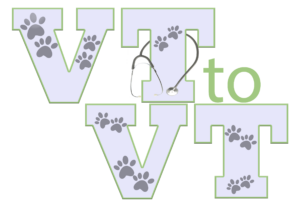Becoming a veterinary technician is more than just a love for animals; it requires a unique blend of technical skills, personal qualities, and a deep commitment to animal welfare. While formal education provides the foundation of knowledge and technical abilities, certain inherent traits and learned skills are crucial for thriving in this demanding yet rewarding profession. This post explores the essential skills and qualities needed to succeed as a veterinary technician.
Technical Proficiency: The Core Competencies
A strong foundation in veterinary medical concepts and procedures is paramount. This is primarily gained through completing an accredited veterinary technology program. Some key technical skills include:
- Animal Handling and Restraint: Safely and effectively handling and restraining animals of various species, sizes, and temperaments is crucial. This requires patience, understanding animal behavior, and using appropriate restraint techniques to minimize stress for both the animal and the handler.
- Clinical Laboratory Skills: Performing various laboratory tests, including blood counts, urinalysis, fecal examinations, and cytology. This requires precision, attention to detail, and knowledge of laboratory equipment and procedures.
- Medication Administration and Dosage Calculation: Accurately calculating drug dosages and administering medications via various routes (oral, subcutaneous, intravenous, intramuscular). This requires a strong understanding of pharmacology and meticulous attention to detail to prevent medication errors.
- Surgical Assisting and Anesthesia Monitoring: Assisting veterinarians during surgical procedures, preparing surgical instruments, and monitoring patients under anesthesia. This requires knowledge of surgical protocols, aseptic techniques, and the ability to recognize and respond to anesthetic complications.
- Radiology and Imaging: Operating X-ray equipment, positioning patients for radiographs, and understanding basic image interpretation. This requires knowledge of radiation safety protocols and the ability to produce high-quality diagnostic images.
- Dental Prophylaxis and Procedures: Performing dental cleanings, taking dental radiographs, and assisting with dental extractions and other procedures. This requires knowledge of dental anatomy, dental instruments, and proper dental hygiene techniques.
Beyond the Technical: Essential Personal Qualities
While technical skills are essential, certain personal qualities are equally important for success as a veterinary technician:
- Compassion and Empathy: A genuine love for animals and a deep understanding of the human-animal bond are fundamental. Veterinary technicians must be able to empathize with both animals and their owners, especially during times of stress and grief.
- Communication Skills: Effective communication is crucial for interacting with clients, veterinarians, and other team members. This includes clear verbal and written communication, active listening skills, and the ability to explain complex medical information in a way that clients can understand.
- Attention to Detail: Accuracy and precision are critical in all aspects of veterinary technology, from calculating drug dosages to performing laboratory tests. A keen eye for detail can prevent errors and ensure patient safety.
- Problem-Solving Skills: Veterinary technicians often face unexpected situations and must be able to think critically and solve problems quickly and effectively. This requires the ability to assess situations, gather information, and make sound decisions under pressure.
- Physical Stamina and Endurance: The job can be physically demanding, requiring long hours on your feet, lifting and restraining animals, and performing physically strenuous tasks. Good physical health and stamina are essential.
- Resilience and Emotional Stability: Working with sick and injured animals can be emotionally challenging. Veterinary technicians must be able to cope with stress, handle difficult situations, and maintain emotional stability in the face of animal suffering and client grief.
- Teamwork and Collaboration: Veterinary technicians work as part of a team, collaborating with veterinarians, other technicians, and support staff. The ability to work effectively as part of a team is crucial for providing high-quality patient care.
Question 1: How can I improve my animal handling skills?
Answer: Practice is key. Volunteering at an animal shelter, shadowing a veterinary technician, or working as a veterinary assistant can provide valuable hands-on experience in handling various animal species and temperaments. Participating in workshops or continuing education courses focused on animal behavior and restraint techniques can also be beneficial.
The Importance of Continuing Education:
The field of veterinary medicine is constantly evolving, with new research, treatments, and technologies emerging regularly. Continuing education is essential for veterinary technicians to stay up-to-date on the latest advancements and maintain their professional competence. Many organizations, such as the National Association of Veterinary Technicians in America (NAVTA), offer continuing education opportunities through conferences, online courses, and webinars.
Question 2: Where can I find continuing education opportunities for vet techs?
Answer: Several organizations provide continuing education for veterinary technicians. NAVTA is a great resource: https://navta.net/. Additionally, many veterinary schools, state veterinary medical associations, and veterinary supply companies offer continuing education programs. Online platforms also offer a wide range of courses and webinars.
Developing Soft Skills:
While technical skills are often the focus of veterinary technology programs, developing soft skills like communication, empathy, and problem-solving is equally important. These skills can be honed through practice, self-reflection, and seeking feedback from mentors and colleagues.
Question 3: How can I develop my communication skills as a future vet tech?
Answer: Actively practice listening to others, both in professional and personal settings. Pay attention to body language and nonverbal cues. Seek opportunities to communicate with clients, such as during shadowing experiences or volunteer work. Consider taking courses or workshops on communication skills, or seek feedback from mentors on your communication style.
Success as a veterinary technician requires more than just technical expertise. It demands a unique combination of compassion, communication skills, resilience, and a dedication to lifelong learning. By cultivating these essential skills and qualities, aspiring veterinary technicians can embark on a fulfilling and impactful career in animal healthcare.
